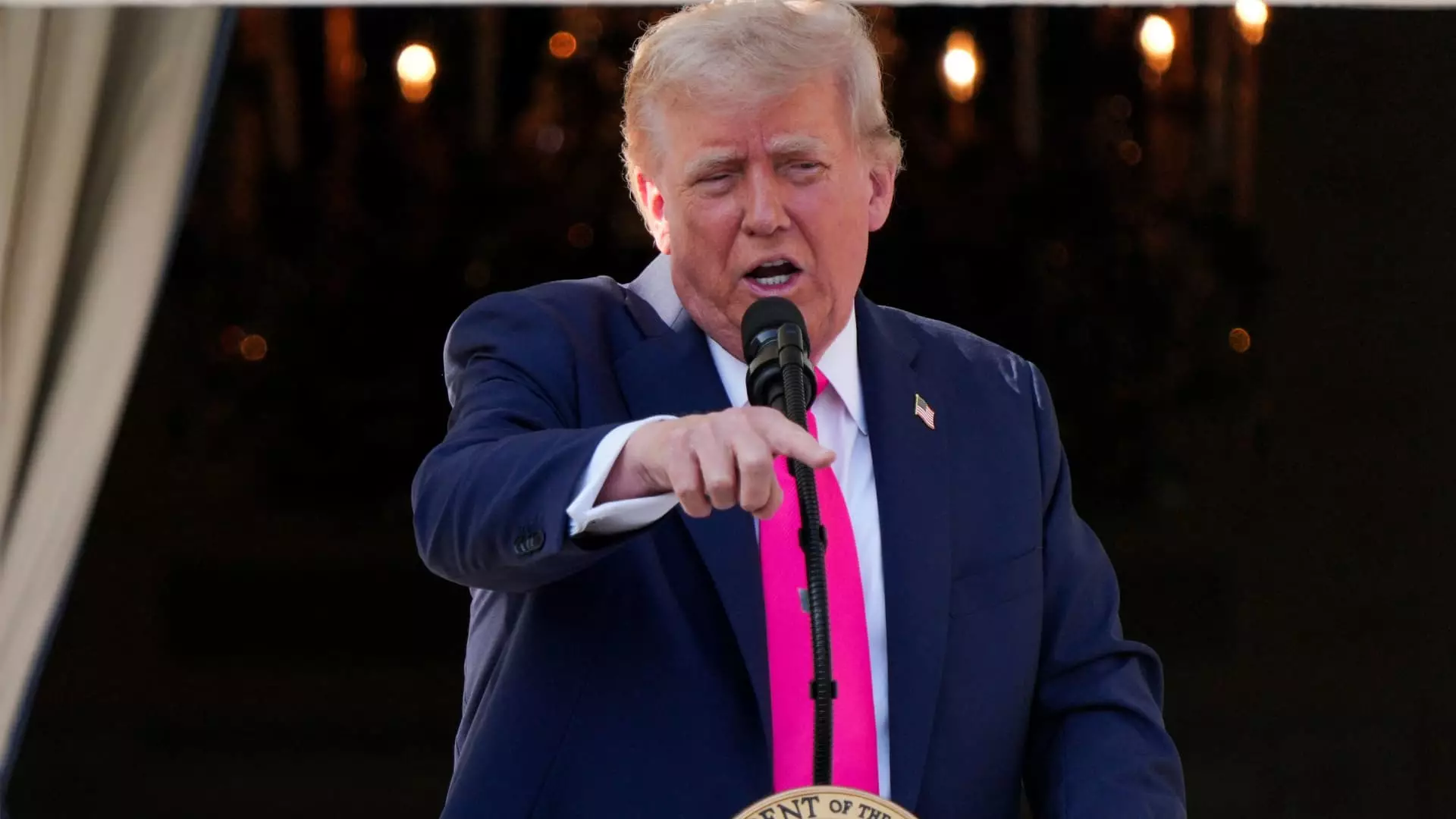The recent announcement by President Trump of impending tariffs on 12 foreign nations signals a dangerous pivot in U.S. trade policy—one that risks detaching America further from its role as a global leader. The move appears to be driven by a combination of political bravado and a misguided effort to showcase strength, yet what it truly exposes is a reckless abandon of prudent economic strategy. In an era when international cooperation and stable markets are paramount, such aggressive tariff threats threaten to destabilize global supply chains and alienate long-standing allies.
Rather than engaging in thoughtful negotiation, the Trump administration seems to prefer unilateral displays of power, prioritizing short-term political wins over strategic diplomacy. The “take it or leave it” approach embodied by the upcoming tariffs is emblematic of a zero-sum mentality that undermines the mutually beneficial nature of international trade. By sending these “bold” notes to other nations, the U.S. signals a willingness to escalate trade tensions, potentially igniting retaliatory measures that could spiral into a full-blown trade war, damaging industries and consumers on both sides.
The Hidden Costs of Brinkmanship
This aggressive stance comes at a steep cost. Historically, sustained trade conflicts tend to dampen economic growth, increase prices for consumers, and hamper innovation. Yet, instead of recognizing these perils, Trump’s team appears captivated by the illusion of dominance—believing that it can bully its way into better trade terms. But in reality, such tactics often backfire, damaging America’s credibility and economic influence.
Furthermore, the sidelining of complex negotiations—once painstakingly built over years—reveals a lack of understanding about the nuanced nature of global commerce. Rushing to implement tariffs without comprehensive agreements often results in arbitrary trade barriers that disrupt supply chains, inflate costs for American companies, and ultimately harm workers. The recent deals with Britain and Vietnam illustrate that rapid, top-down negotiations produce uneven results: limited sectors benefit, while many others face increased uncertainty.
What is most alarming is the administration’s seeming disregard for the multilateral fabric that has held the global economy together. Instead of fostering alliances and working towards comprehensive agreements, the focus has shifted to issuing threats and issuing tariffs—tools that tend to foster resentment rather than genuine cooperation. The EU, India, and other key players have either failed to yield to these tactics or are contemplating extending their existing protections to avoid detrimental hikes, signaling a fracture in U.S. diplomatic relations.
The Fallacy of American Exceptionalism in Trade
This pursuit of tariff-based dominance exposes a fundamental misunderstanding: that economic strength stems from cooperation and leadership rather than unilateral brinksmanship. By trying to intimidate allies and adversaries alike, the U.S. risks forfeiting its moral authority. In the long run, this approach diminishes America’s capacity to shape the global economic order favorably.
Moreover, the shift toward higher tariffs and the threat of up to 70% rates reflect a shortsighted desire to protect certain industries at the expense of the broader economy. Such measures threaten to ignite retaliatory tariffs that could hurt American farmers, manufacturers, and consumers. The rhetoric of “taking a tough stance” masks a vulnerability—the inability to craft sustainable, Win-Win solutions that would actually benefit U.S. interests over the long haul.
This aggressive posture aligns with the broader trend of transitory nationalism plaguing modern geopolitics. While it might yield quick political gains, it neglects the importance of fostering long-term global stability. America’s influence is rooted in its ability to lead through cooperation, expertise, and innovation—not through threats and tariffs.
The current trajectory of America’s trade policy, characterized by tariff threats and diplomatic brinkmanship, is more rooted in spectacle than substance. It jeopardizes economic stability, risks igniting retaliations, and undermines America’s standing as a responsible global player. True leadership must be grounded in diplomacy, mutual respect, and strategic engagement—not in aggressive tariffs that threaten to suffocate the very economic growth that Americans depend on.
If the United States wants to maintain its place at the global table, it must abandon the illusion that economic dominance can be achieved through intimidation alone. Instead, it must embrace a pragmatic, balanced approach—one that values long-term partnerships and sustainable growth over short-term political shows. Anything less is a perilous gamble with America’s future prosperity and its moral authority in the interconnected world.

